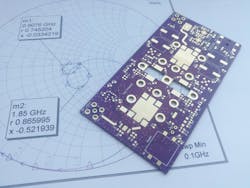Researchers ask industry to develop RF sensors and machine learning for reconfigurable computer hardware
ARLINGTON, Va. – U.S. military researchers are asking industry to find new ways of developing advanced RF sensors for array control and signal processing that will help reason over the possibilities of reconfigurable computer hardware.
Officials of the U.S. Defense Advanced Research Projects Agency (DARPA) in Arlington, Va., issued a program solicitation this month (DARPA-PS-24-18) for the Next Generation Electronic Surveillance Technology (NGEST) program.
Execution of NGEST likely will require expertise in subject areas like machine learning, signal processing, RF hardware properties, software, and control theory, DARPA officials say.
NGEST is a 33-month program organized into 15-month first phase, and an 18-month optional second phase. NGEST Phase 1 will focus on modeling and simulation within a government-defined RF sensors testbed. Phase 2 will focus on prototyping, testing, and measurements in laboratory and outdoor environments.
Performer teams will integrate real-time orchestration software onto prototype reconfigurable computer hardware developed by the government team. Not all phase-one performers will be phase-two performers, and only the most promising approaches will move on to phase-two.
During phase-one, the performers will integrate their software onto a government-provided modeling-and-simulation test bed, which will be updated periodically based on feedback and lessons learned.
Companies interested should email abstracts no later than 27 Aug. 2024 to DARPA at [email protected]. Email questions or concerns to [email protected]. More information is online at https://sam.gov/opp/e1d60102c47b491dabdddbdceb3ad595/view.
About the Author
John Keller
Editor-in-Chief
John Keller is the Editor-in-Chief, Military & Aerospace Electronics Magazine--provides extensive coverage and analysis of enabling electronics and optoelectronic technologies in military, space and commercial aviation applications. John has been a member of the Military & Aerospace Electronics staff since 1989 and chief editor since 1995.
